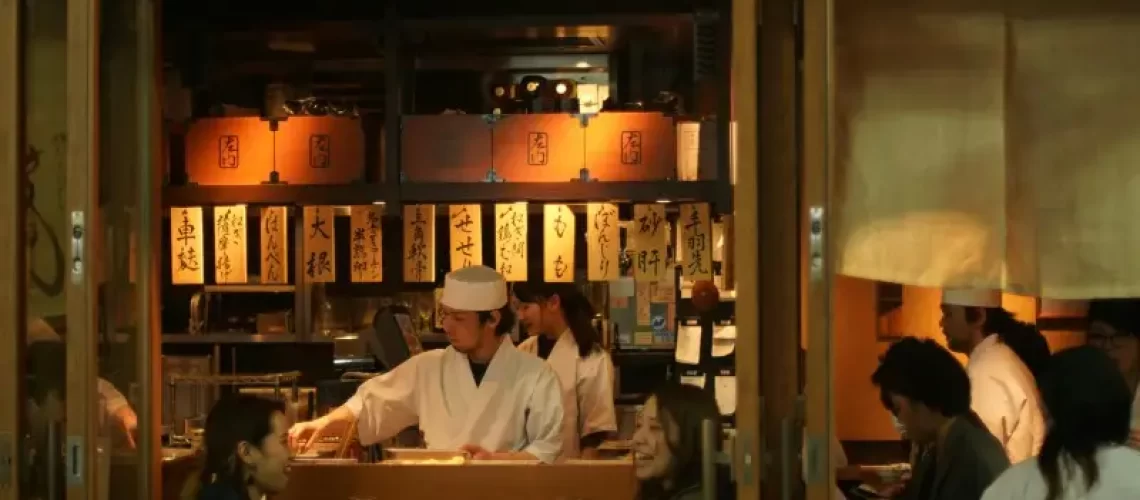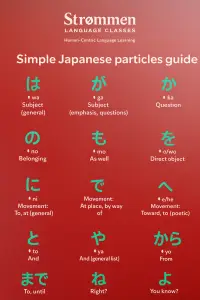How To Make Friends in Japan: Cool Japanese Words and Phrases You’ll Actually Use (Lesson 4)
Short Answer:
To make friends in Japan, use friendly phrases like 「ともだちになってください」(Tomodachi ni natte kudasai) — literally “Friend to become please” — and sprinkle in fun slang like やばい (yabai) for “cool” or まじ (maji) for “really.” Combine good manners with modern expressions and you’ll connect instantly.
Basic Friendship Phrases in Japanese
1. Tomodachi — 友達 — “Friend”
Literal breakdown: tomo (companion) + dachi (plural suffix for people) → “friends.”
-
ともだちになってください (Tomodachi ni natte kudasai) — “Please become my friend.”
Literal: tomodachi (friend) + ni (to) + natte (become) + kudasai (please). -
ともだちです (Tomodachi desu) — “You are my friend.”
Literal: tomodachi (friend) + desu (is/polite).
Social and Drinking Vocabulary
If you’re hanging out, you’ll hear these a lot:
-
よっぱらい (yopparai) — “Drunk.”
-
のみともだちになってください (Nomi tomodachi ni natte kudasai) — “Please become my drinking buddy.”
Literal: nomi (drinking) + tomodachi (friend) + ni natte kudasai (become please).
Ordering drinks:
-
なまビールひとつください (Nama bīru hitotsu kudasai) — “One draft beer, please.”
Literal: nama (draft) + bīru (beer) + hitotsu (one) + kudasai (please).
Count beers naturally like this:
1️⃣ ひとつ (hitotsu) 2️⃣ ふたつ (futatsu) 3️⃣ みっつ (mittsu) 4️⃣ よっつ (yottsu) 5️⃣ いつつ (itsutsu) 6️⃣ むっつ (muttsu)
-
なまビール二つください (Nama bīru futatsu kudasai) — “Two draft beers, please.”
-
みんなに (minna ni) — “For everyone.”
-
ぼくのおごりです (Boku no ogori desu) — “It’s on me.”
Literal: boku (I/male) + no (possessive) + ogori (treat/gift) + desu (is/polite).
Food, Likes, and Recommendations
When eating out:
-
おいしいです (Oishii desu) — “It’s delicious.”
Literal: oishii (delicious) + desu (is/polite). -
とてもおいしいです (Totemo oishii desu) — “It’s very delicious.”
Literal: totemo (very) + oishii (delicious) + desu (is/polite). -
まじおいしい!(Maji oishii!) — “Really good!” (casual/slang)
Literal: maji (really) + oishii (delicious). -
いちばんのおすすめはなんですか (Ichiban no osusume wa nan desu ka) — “What’s your number one recommendation?”
Literal: ichiban (number one) + no (of) + osusume (recommendation) + wa (topic marker) + nan desu ka (what is?).
Cool Slang to Sound Natural
-
やばい (Yabai) — Originally “dangerous,” now means “cool,” “awesome,” or even “crazy.”
Example: やくざはやばいです (Yakuza wa yabai desu) — “The Yakuza are shady.”
But casually: おーやばい!(Ō yabai!) — “Whoa, that’s sick!”
Combine for fun emphasis: まじやばい (Maji yabai) — “Seriously awesome!”
Counting People (Useful at Restaurants)
-
なんめいさまですか (Nan-mei sama desu ka) — “How many people?”
Literal: nan (what) + mei (person counter) + sama (polite honorific) + desu ka (is it?).
1️⃣ ひとり (hitori) — one person
2️⃣ ふたり (futari) — two people
3️⃣ さんにん (sannin) — three people
4️⃣ よにん (yonin) — four people
5️⃣ ごにん (gonin) — five people
6️⃣ ろくにん (rokunin) — six people
Talking About Likes and Dislikes
-
うにが大好きです (Uni ga daisuki desu) — “I love sea urchin.”
Literal: uni (sea urchin) + ga (subject marker) + daisuki (big like) + desu (is/polite). -
かれはおにくがすきです (Kare wa oniku ga suki desu) — “He likes meat.”
Literal: kare (he) + wa (as for) + oniku (meat) + ga (subject) + suki desu (like/polite). -
かのじょはさかながちょっとにがてです (Kanojo wa sakana ga chotto nigate desu) — “She’s not a big fan of seafood.”
Literal: kanojo (she) + wa (as for) + sakana (fish/seafood) + ga (subject) + chotto (a little) + nigate desu (not good at/dislike/polite).
Useful Everyday Expressions
-
だいじょうぶです (Daijōbu desu) — “I’m fine / It’s okay.”
Literal: daijōbu (alright) + desu (is/polite). -
すみません (Sumimasen) — “Excuse me / I’m sorry.”
Literal: sumi (to finish) + masen (not) → “I’m not finished (with my apology)” → “Excuse me.” -
ちょっとまってください (Chotto matte kudasai) — “Please wait a moment.”
Literal: chotto (a little) + matte (wait) + kudasai (please). -
じゃまた (Ja mata) — “See you later.”
Literal: ja (then) + mata (again).
Introducing Yourself Casually
-
エルエーからきました (Eru E kara kimashita) — “I came from L.A.”
Literal: Eru E (L.A.) + kara (from) + kimashita (came/polite). -
セントルイスしゅっしんです (Sentoruisu shusshin desu) — “I’m from St. Louis.”
Literal: Sentoruisu (St. Louis) + shusshin (origin) + desu (is/polite). -
イタリアのローマにすんでいました (Itaria no Rōma ni sunde imashita) — “I used to live in Rome, Italy.”
Literal: Itaria (Italy) + no (of) + Rōma (Rome) + ni (in) + sunde imashita (lived/past polite).
Final Tip
Japan loves warmth and respect—mix polite Japanese with casual slang, and you’ll come off as friendly yet natural. Start with 「ともだちになってください」 and let curiosity and a smile do the rest.
Related Guides
-
Top 500 Japanese Words You Must Know to Speak Fluently — vocabulary list + pronunciation tips. Strømmen Language Classes
-
Why You Should Learn Japanese? — benefits of studying Japanese. Strømmen Language Classes
-
Learn Greetings in Japanese with Shige! — video lesson on greetings.




